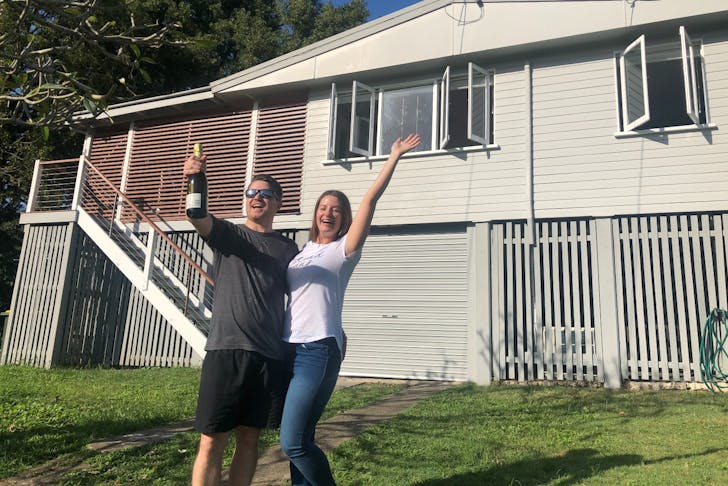Real talk: the thought of buying your first home can be seriously intimidating. It seems like every other day the news is hitting us with a report about rate increases and rising costs that make the dream of owning your own property feel like just that… a dream.
The good news is, it’s really not all doom and gloom. You just need the right support crew behind you. Enter: the legends at Bankwest. We’ve teamed up with the home loan experts to get the goss on exactly what you need to put you on the right path to bagging your own pad. Read on to find out how.
Have A Yarn With A Home Loan Specialist
Before you even begin browsing the real estate apps, it’s uber important to take a step back and suss out your financial situation. The best way to figure out where you stand is to book a chat with a home lending specialist either in person, over the phone or via email. The knowledgeable legends are always down for a chat and are there to guide you through the home loan process. You can even chat to them online if you don’t feel ready to talk in person yet. Or, if you want to keep it casual, you can meet at your local café to get the info you need face to face. They’re obligation free, super easy and ready and raring to answer all of your q’s, no matter how big or small. They can even give you free property reports that have handy info like what properties are worth in your dream suburb—or perhaps even an up-and-coming spot you hadn’t considered. Either way, you’ll leave your session armed with the right knowledge you need to begin your search.
Check Out Your Credit Score
‘Your what?’ we hear you say. Put simply, your credit score (also known as a credit rating) is what lenders will use to decide how much money to give you, and at what rate of interest—so you’re going to want to be across it. Your credit score is based on your borrowing and repayment history—yep, we’re talking Afterpay, credit cards, previous accounts you’ve opened and closed, and things like car loans. The good news is, your credit score isn’t fixed, it just reflects your current situ. To ensure your score is as strong, remember to pay your bills and loan repayments on time. To suss out your current credit score, you can get a credit report for free from places like Experian, illion and Equifax. There's no harm in checking—knowledge is power.
Start Saving Your Deposit
Sure, this part might seem the most intimidating, but with a thoughtful strategy in place, it’s easier than you think. In many situations, you’ll need to save 20% of the value of the property you’re after. Here are some simple hacks to help get you there. Can’t quite get the cash together that you need for your dream home? Another option is chatting to your parents or a family member about going guarantor on your loan. You can find out all about it here. Finally, if you can’t save 20%, you might be surprised to know there are ways to buy a home with a lower deposit. Things like LMI or government grants can help you buy a home for as little as 5%. Unsure what Lenders Mortgage Insurance (LMI). Read about it here.
Apply For Your First Home Owner Grant
If the thought of saving a chunk of change sounds intimidating (we feel you), the good news is, there is help out there. You might be eligible for the First Home Owner Grant (FHOG) or the First Home Super Save Scheme (FHSS). These grants can see your score up to $15,000 cash to put towards a new house build or first home. If you want to find out if you’re eligible, a home loan specialist can help you out with the paperwork and documents needed to access the schemes.
Budget For Added Costs
While saving for your deposit might seem like the only cost you need to save for—there are a few more ‘hidden’ costs you need to know about. And we say hidden because most people don’t realise they have to cough up the cash for them until it’s too late. Fortunately, we’re here to ward off the scaries. When you’re putting away dosh each week for your home deposit, squirrel away a little extra for things like stamp duty (a state or territory government tax that’s charged for your legal doc to be stamped), title transfer fee, title search fee, mortgage registration fee, conveyancing fees and Lenders Mortgage Insurance (LMI). Some of the above may be covered in your Home Owners Grant and change from state to state. Head here to calculate those pesky extra costs.
Feeling ready to start looking for your new home? For all the tips and tricks you need to make that process an absolute breeze, head over here. Or, to find more info on who to speak to before buying, read this.
Editor’s note: this article was produced in partnership with Bankwest. Thank you for supporting the partners who make Urban List possible. To read our editorial policy, click here.
Image: Urban List.
